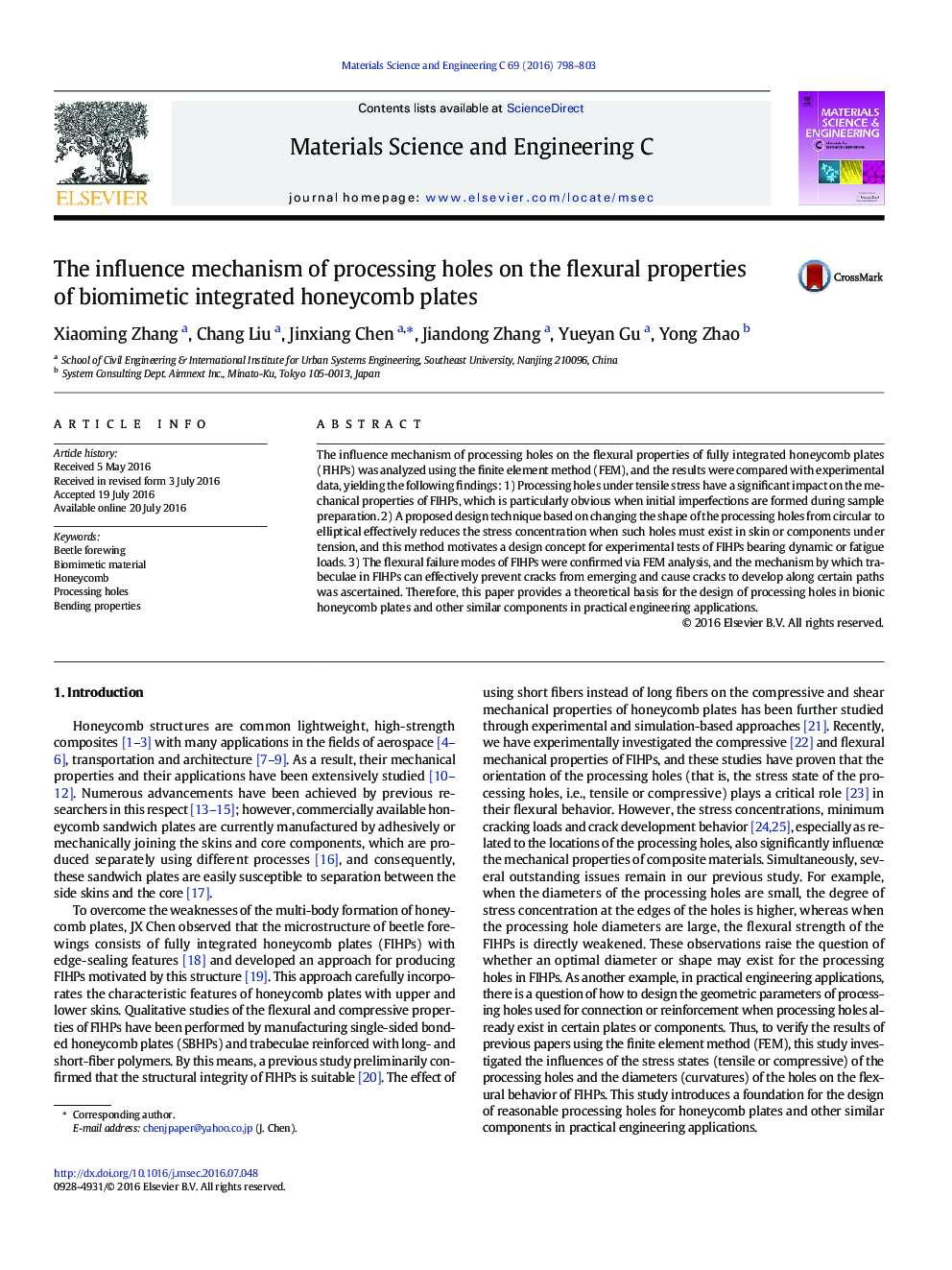| Article ID | Journal | Published Year | Pages | File Type |
|---|---|---|---|---|
| 1427914 | Materials Science and Engineering: C | 2016 | 6 Pages |
•A design technique based on changing the shape of processing holes from circular to elliptical is proposed.•The curve of the stress concentration factor kr lays a solid foundation for the design of fatigue tests for FIHPs.•Trabeculae in FIHPs can effectively prevent cracks from emerging or cause cracks to develop along certain paths.•The existence of trabeculae causes tension to be distributed over a larger area.
The influence mechanism of processing holes on the flexural properties of fully integrated honeycomb plates (FIHPs) was analyzed using the finite element method (FEM), and the results were compared with experimental data, yielding the following findings: 1) Processing holes under tensile stress have a significant impact on the mechanical properties of FIHPs, which is particularly obvious when initial imperfections are formed during sample preparation. 2) A proposed design technique based on changing the shape of the processing holes from circular to elliptical effectively reduces the stress concentration when such holes must exist in skin or components under tension, and this method motivates a design concept for experimental tests of FIHPs bearing dynamic or fatigue loads. 3) The flexural failure modes of FIHPs were confirmed via FEM analysis, and the mechanism by which trabeculae in FIHPs can effectively prevent cracks from emerging and cause cracks to develop along certain paths was ascertained. Therefore, this paper provides a theoretical basis for the design of processing holes in bionic honeycomb plates and other similar components in practical engineering applications.
Graphical abstractFigure optionsDownload full-size imageDownload as PowerPoint slide
